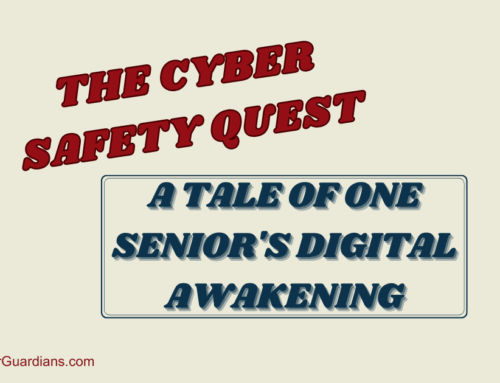
In the context of a rapidly advancing digital landscape, cyber security emerges as a critical concern, particularly for seniors navigating the online realm. Analyzing the cyber security measures tailored for this demographic is essential to understanding the efficacy of safeguarding seniors’ online experiences. In this analysis, we delve into the cyber security practices aimed at empowering seniors with the knowledge and tools to navigate the digital world confidently.
1. Password Management: The First Line of Defense
A fundamental aspect of cyber security involves password management. Seniors are encouraged to create strong and unique passwords, utilizing a combination of alphanumeric characters and symbols. The analysis reveals that this practice establishes a crucial first line of defense against potential cyber threats, protecting their personal information from unauthorized access.
2. Addressing Phishing Vulnerabilities
The analysis highlights the significance of addressing phishing vulnerabilities, given their prevalence in targeting seniors. By fostering awareness about phishing scams and their deceptive tactics, cyber security initiatives effectively empower seniors to identify and thwart potential threats. The incorporation of awareness training in cyber security programs for seniors emerges as a strategic approach in countering this cyber threat.
3. Software Updates: Fortifying Digital Fortresses
The importance of regular software updates is underscored in the analysis as a means to fortify seniors’ digital fortresses against emerging cyber threats. The proactive installation of security patches and updates ensures that their devices remain resilient, mitigating potential vulnerabilities and enhancing their overall cyber security posture.
4. Encryption: Shielding Digital Footprints
Analysis indicates that encryption is a valuable tool for seniors to safeguard their digital footprints. By enabling encryption on their devices, seniors can ensure that their sensitive data remains indecipherable to unauthorized entities. This defensive measure reinforces the protection of their personal information in the face of potential data breaches.
5. Multi-Factor Authentication (MFA): Bolstering Authentication Mechanisms
The analysis unveils Multi-Factor Authentication (MFA) as a compelling strategy to bolster authentication mechanisms for seniors. The implementation of MFA adds an extra layer of security, requiring multiple verification steps for accessing online accounts. This layered approach significantly reduces the risk of unauthorized access, thereby augmenting seniors’ overall cyber security defenses.
In conclusion, the analysis sheds light on the efficacy of cyber security measures designed for seniors, emphasizing their potential to fortify online defenses. Password management, phishing awareness, regular software updates, encryption, and the adoption of Multi-Factor Authentication emerge as instrumental components in safeguarding seniors’ digital experiences. As the digital landscape continues to evolve, further analysis and adaptation of cyber security initiatives will ensure that seniors can confidently navigate the digital realm, shielded from potential cyber threats. With informed cyber security practices, seniors can embrace the digital world with resilience and confidence.

 We hope you enjoy reading this blog post. If you are ready to have us
We hope you enjoy reading this blog post. If you are ready to have us


